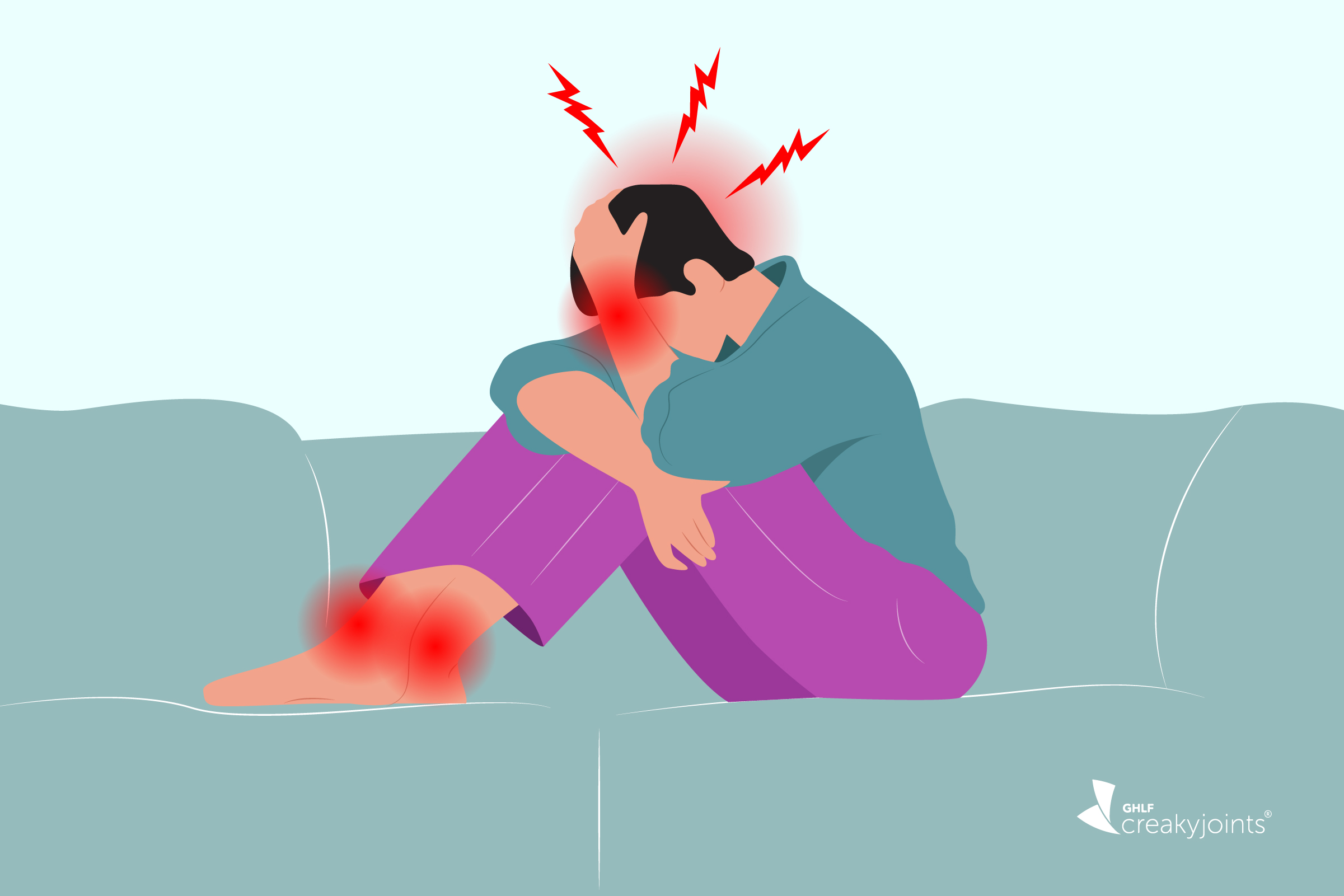“Eczema Can’t Steal My Self-Esteem”
“Eczema Can’t Steal My Self-Esteem”

Tamisha Jackson-Young, a 33-year-old fintech customer service manager, considers herself a work in progress, as suggested by her Instagram handle @growwithmish. In her posts, she shares her experience living with eczema, degenerative disc disease, and hypothyroidism, offering inspiring messages such as “Never stop searching for answers” and “Always strive for positivity, even through small changes in your day.”
Tamisha Jackson-Young has struggled with her health since she was diagnosed with eczema as a baby. During her childhood, the condition mainly affected the creases of her arms, the nape of her neck, and her stomach. “It was raised bumps, and I would scratch it,” says the Boston native. “The bumps would turn red and have scabs; it would be red patches of bumps probably a little bigger than the size of my elbow. But since the areas were easy to hide, I didn’t necessarily think it was embarrassing.”
The right pediatrician made a difference
Tamiko, Tamisha’s mother, says, “As a parent of a child with a skin disease, it was very concerning, and trying over-the-counter products that didn’t work was an emotional roller coaster of frustration and sorrow.”
Tamiko eventually took Tamisha to a pediatrician who was from Africa. “The pediatrician prescribed shampoo and a bath treatment of sulfur and tar, followed by Eucerin cream after bathing.” Tamisha remembers the treatment well, saying, “The bath smelled to me like the train station!” with a laugh.
An evolving disease, an evolving treatment
Over the years, Tamisha has tried a variety of treatments for her eczema, with one exception: steroids. These drugs were off-limits because they can change skin color, especially noticeable on darker skin.
Her eczema has also changed over time. “About a year ago, I started getting it on my cheeks, my eyelid and under my eyebrows, my lips, my neck, and the top of my shoulders. I even got it in my eardrum — I didn’t know you could get eczema in your eardrum!”
The sudden appearance of eczema in highly visible areas took a toll on Tamisha’s self-esteem. “When I have it, I don’t want to be seen, especially when it’s peeling and flaky,” she admits. “I feel like people look at me and think I don’t wash my face.”
Tamisha also recalls a childhood memory: “I remember as a kid seeing girls with a black ring around their lips — I’ve never seen anyone outside of black children with that ring,” she says. “I was told those girls were licking their lips too much, but as I got older, I learned it was actually eczema. That’s why it bothered me so much when I could see the black ring starting to form on my face as an adult. Those girls were constantly teased, though I never participated in it.”
Fortunately, her dermatologist prescribed an ointment strictly for her face, ears, and neck called desonide that won’t discolor her skin. “I put it on, and pretty much the next morning, the rash is smoothed over. It will still be itchy, but within a two-day span, the itching is gone too.”
Advocating for compassionate hair care
Tamisha believes in the power of presenting yourself well — and that includes hair care. “As a child, I had a special shampoo because of my eczema.” She also had a very special pro tending to her: her hairstylist mom Tamiko. “I grew up in a hair salon,” says Tamisha, who went with her mom to work when she couldn’t get a babysitter.
As someone who has struggled with eczema, Tamisha understands the importance of having a knowledgeable and compassionate hairstylist. “If you have a stylist who can help you treat your scalp conditions, it builds your self-confidence. You always walk out seeing yourself completely differently,” she says. Tamiko agrees, stating that “a stylist should be able to help the client leave the salon feeling uplifted and beautiful.”
So it’s no surprise Tamisha feels strongly about participating in the Global Healthy Living Foundation’s HEROES (Health Education + Reliable Outreach + Empathetic Support) program, which is designed to educate hairstylists on the challenges faced by people living with scalp and skin conditions.
Tips for Working with Your Hair Pro
We asked Tamisha and Tamiko for their thoughts as a client and a stylist, and here’s what they had to say.
“My trust in stylists is very fickle, partially because I grew up in a salon but also because of how hard I work to maintain the health of my skin,” says Tamisha, who recommends…
Vet your stylist
Read the reviews, look at their videos, look at how they’re treating other people’s hair…and look at their hair. If your stylist’s hair doesn’t look healthy, I wouldn’t trust them. If they’re not maintaining the integrity of their hair and scalp how can I trust that they’ll maintain the integrity of mine?
Look for a specialist
Try apps like StyleSeat, where the stylists tell you what they specialize in. If their specialty doesn’t align with what you’re looking for, don’t book.
Have that conversation first
Before your session, your hairdresser should be asking you questions. They should be looking at your scalp and examining your hair health and asking what’s going on with your hair. Look for honesty and transparency. Remember, a stylist can damage your hair and your self-esteem if they try to do something they can’t do.
A Message for Hair Professionals
As a stylist, Tamiko has been on the front lines of helping clients with skin and scalp conditions, including daughter Tamisha, who has had eczema since childhood. To her fellow hairstylists, Tamiko recommends…
Asking about a diagnosis
“If you notice that a client may have a condition, make sure they have seen a dermatologist and have a diagnosis,” says Tamiko. “They may need to use special shampoos, and we don’t want to put anything on their scalp that may irritate it.”
Staying open minded
“You have to learn to listen to your client,” says Tamiko. “Even if you know about a skin or scalp condition, you can learn something different; your client knows their body, and even though something may work for most people, it might not work for that person.”
Offering discretion
“Some clients with scalp or skin conditions are not comfortable being in the salon with everyone else,” points out Tamiko. “If you don’t have a private area in your salon, try scheduling those clients during less busy times, like maybe when you first open.”
Join GHLF’s HEROES Program
GHLF invites you to make a difference in your community with our FREE and unique program called HEROES (Health Education + Reliable Outreach + Empathetic Support). HEROES is a FREE education and outreach initiative that equips beauty professionals to better support clients living with scalp and other skin conditions and offers people living with skin and scalp conditions helpful resources and information on getting a proper diagnosis, managing symptoms, and becoming an empowered patient. To learn more, visit GHLF.org/HEROES today.




